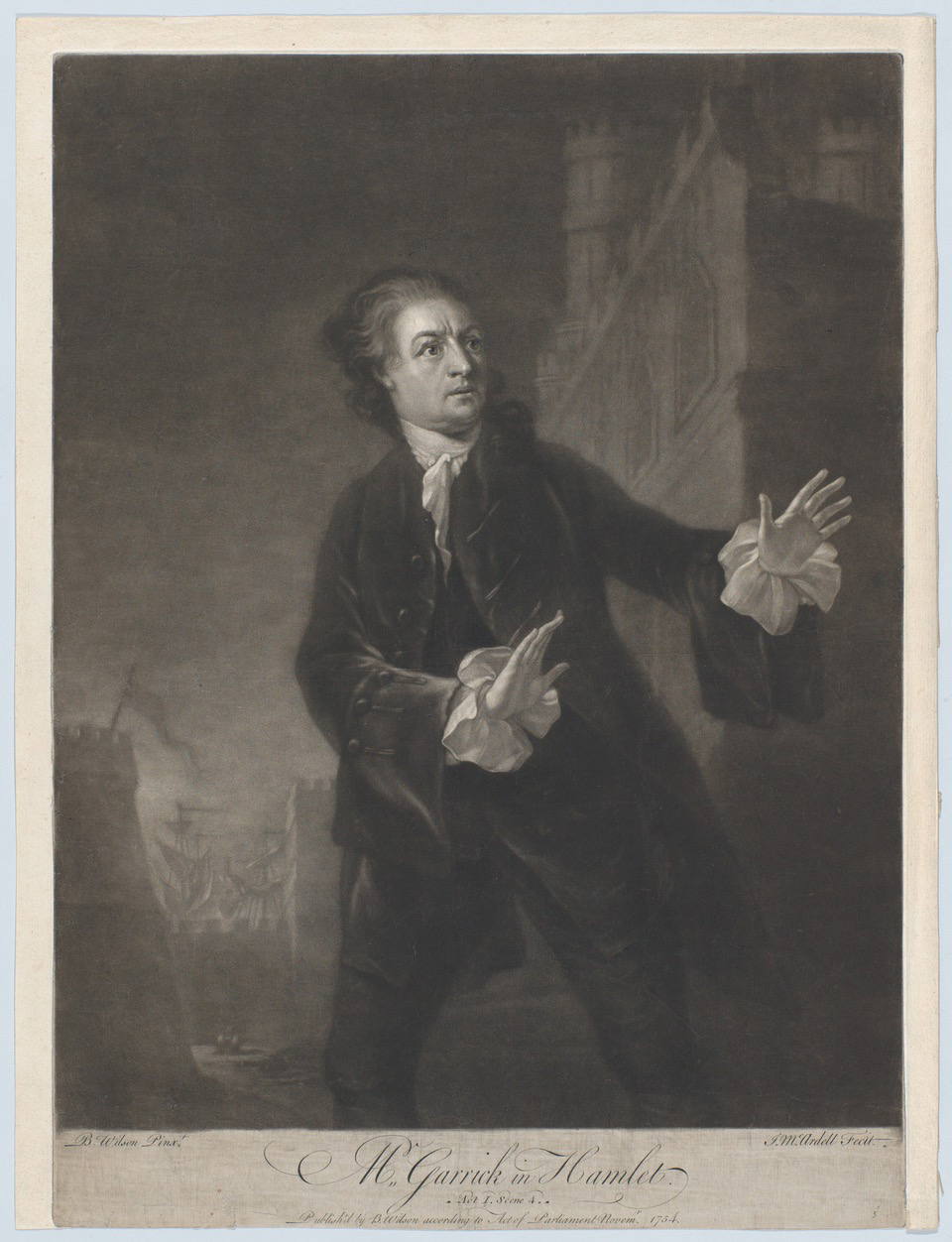New Play Development
- Cary Mazer
- School of Arts & Sciences
-
Independent Creative Production Grant

Promotional materials for "A Puppeteer with the Palsy Performs Scenes from Shakespeare" utilized the iconic image of David Garrick in Hamlet (Shakespeare, Act 1, Scene 4), 1754, engraved by James McArdell.
Cary Mazer workshopped his play A Puppeteer with the Palsy Performs Scenes from Shakespeare, which tells the story of the puppeteer’s struggle with the progressive symptoms of Parkinson’s disease.
In spring 2019, as this project was coming to an end, Erin O’Malley (C ’21), Communications and Student Engagement Associate, interviewed Cary Mazur about New Play Development. The following feature has been edited from that conversation.
Cary Mazer is a professor of Theatre Arts and English and recipient of a 2018 Independent Creative Production Grant, which funded a free, open-to-the public script-in-hand reading of Mazer’s play A Puppeteer with the Palsy Performs Scenes from Shakespeare, or, The Ghost in the Machine at the Annenberg Center this past October of 2018.
Although Mazer’s scholarship on performance history has primarily been concerned with how canonical scripts change their meanings in different times and places and how the interventions of a director can change a script, his first play, Pinchas Vontz, was based on the idea for a radical transformation that privileged playwright intervention rather than the actions of a director. Mazer’s play Pinchas Vontz is a free adaptation of the Peer Gynt by Henrik Ibsen in which the original Norwegian mythology is changed to Jewish folklore.
But even after writing Pinchas Vontz, Mazer thought it was just a one-off and avoided calling himself a playwright. But then he wrote another play. And another one. And then another one.
Mazer had always been aware of the craft of playwriting, but writing A Puppeteer with the Palsy Performs Scenes from Shakespeare and organizing a script-in-hand reading of the play has given him an added appreciation of the process and the amount of work that goes into plays. “This a plane no one has ever flown before, and I’m flying 10 planes. I’m learning the craft of playwriting and learning how to learn,” says Mazer, “Each play has its own challenges, its own identity, own structure. What this grant allowed me to do with A Puppeteer with the Palsy Performs Scenes from Shakespeare is the most intensive and richest development opportunity I’ve had to date, partly because of the wonderful collaborative experience of working with director/dramaturg Ed Sobel (C‘87) and puppeteer Sara Outing (C‘13).”
Mazer, who has been diagnosed with Parkinson’s disease, says that after the reading of his play, he was asked if he’d written A Puppeteer with the Palsy Performs Scenes from Shakespeare as a form of therapy. What was a surprise to him was that he initially found the question surprising. “Quite honestly, I didn’t [see it as therapy]. That made me wonder how the play would be received by communities with Parkinson’s disease, and that made me realize that not knowing I was writing a disability play.” “I had written a play about an artist who had a disease which prevented him from practicing his art,” he concluded, “and I had taken that subject and made a piece of art.”
As a result of having the opportunity to hold a script-in-hand reading of his play, Mazer says A Puppeteer with the Palsy Performs Scenes from Shakespeare has evolved significantly, noting that the principle change was putting the play in present tense so that the characters’ decisions and consequences could happen in the now. “Afterall, theatre is about things happening rather than things being told.”
Writing plays has given Mazer an added appreciation of the process and the amount of work that goes into a play working or not working, and after writing another four plays since A Puppeteer with the Palsy Performs Scenes from Shakespeare, Mazer now considers himself a playwright.